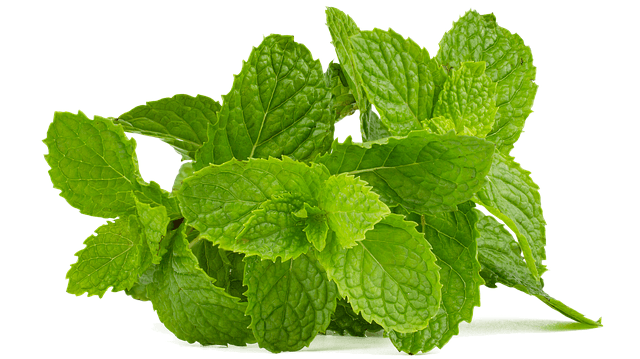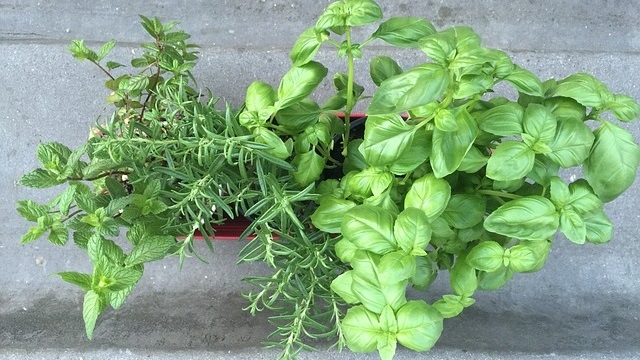Beneficial Plants for Dogs and Cats: Mint and Rosemary
Pet parents who are avid gardeners or are into a mostly green diet, are always hunting for great, pet-friendly plants to add to their best friends’ menu. Today we are celebrating another two of our favorite herbs! Not only are they safe, but also bring great health benefits for your companion pal: mint and rosemary. Let’s find out more about these beneficial plants for dogs and cats! 🌿🐕🐈
In a previous article, we’ve covered parsley, ginger and basil. Find out the benefits those healthy herbs bring and how to use them – your buddies will love it!
- Mint and rosemary are pet-friendly herbs with numerous health benefits for dogs and cats.
- Mint aids digestion, freshens breath, and contains essential vitamins.
- Only Pennyroyal mint is toxic; pets should consume mint in moderation.
- Rosemary is a powerful antioxidant and enhances digestion in pets.
- Always consult a vet for proper herb usage and potential side effects.
Mint

If you think a minty fresh breath is bound to be human exclusive, I’m afraid you’re wrong. Our four-legged friends can also benefit from the wonders of this aromatic herb! However, it’s important to be aware of the different mint species around.
Mint is not a specific plant species. In fact, it is a genus, and its accurate name is Mentha. It belongs to the Lamiaceae family and, as any genus, comprises several species. The Mentha genus has 13 different species as well as some hybrids, which makes it a highly diverse group. Fortunately, most of the varieties, like peppermint, spearmint, lavender mint, apple mint, and even pineapple mint, are totally safe. However, you should steer clear of Pennyroyal (Mentha pulegium), a type of non-culinary mint that is toxic for both people and pets.
Superpowers:
- Fresh mint is rich in Vitamins A and C, which support healthy bones, skin, and vision, as well as the immune system.
- The leaves are a natural source of dietary fibre, which promotes a healthy digestion.
- It soothes upset stomachs, and relieves nausea and diarrhea – especially peppermint!
- It has natural antiviral, antimicrobial, antibacterial, and antifungal properties, which can all help freshen your pets breath.
How to use:
- Pets shouldn’t eat more than a few leaves per day, otherwise they can experience some level of gastrointestinal distress.
- Only one variety of mint is toxic to pets – Mentha pulegium. It can grow in most areas of the United States, except for the coldest regions.
- If your pet starts vomiting, having diarrhea, or showing weakness after eating mint, call your vet immediately or get in touch with Maven’s veterinary team.
- While fresh mint can be good for your pet’s health, artificial forms are another story. Breath mints, for example, often contain xylitol, an artificial sweetener that can be toxic to pets.

Maven Pet
Health Monitor
#1 Vet-recommended pet monitor! Tracks activity, rest, respiratory rate, water intake, scratching and other health indicators 24/7
Rosemary

Whether you plant it in your backyard or buy it, rosemary is a totally safe aromatic herb to add to your buddies’ diet. The FDA also considers it as safe for both humans and pets, which is a great reassurance.
Superpowers:
- It is a powerful antioxidant, which means that it helps fight the free radicals in your furry friend’s body.
- As it enhances digestion, it leads to a healthier gut and optimizes the absorption of micronutrients. It helps prevent gastrointestinal infections and can even help prevent gas.
- It’s a great pathogen-fighter against common bacteria that can grow in food. Ultimately, rosemary may help keep food from spoiling. This property also extends to your pet’s body, protecting them from various fungi and bacteria.
- Ursolic acid is a constituent of this herb and can help improve and support muscle growth, particularly the skeletal muscle. It can also reduce fatty liver disease as well as glucose intolerance. This makes rosemary a good ally in the fight against overweight and obesity.
How to use:
Guess what? Moderation is the key! Rosemary should be offered in small quantities.
- Most forms can be used: dried, fresh whole plant, tincture or tea.
- Dried and fresh forms: sprinkle 1 to 2g on the top of your pet’s food.
- Tincture form: 1/8 teaspoon per 10 pounds of your pet’s weight, given orally and once per day.
- Never use undiluted rosemary oil internally or externally.
- Do not use the oil, even if diluted, on any pet suffering from seizures.
- Avoid using rosemary in pregnant pets.
Beneficial Plants for Dogs and Cats – Conclusion

These beneficial plants for dogs and cats are not toxic to our pets and can actually be a healthy complement to their nutrition. However, keep in mind that the recommended amounts must be followed!
Remember, all pets are different, and what is right for one is not necessarily right for another. If you have any doubt, seek advice with your vet!
Maven is all about proactive pet care. Be your best friend’s best friend by giving them 24/7, high-quality, industry-leading vet care to improve their mental health, physical health and more. No more frantic googling or unneeded stressful visits to the vet – Maven helps you save hundreds while also ensuring your pet lives the best life possible. Get your kit now!





Is mint good for cats? I have my cat and he has a bad breath. How should I know what kind of mint to give him if it is ok to give him mint?
Hello Benedictina! Mint is safe for cats and can be given on a daily basis as long as your cat does not experience any vomits or diarrhea. The only toxic kind is “Mentha pulegium”. I suggest you start with 1 leaf and check how he handles it. Pets shouldn’t eat more than a few leaves per day and I wouldn’t give more than two average size leaves. Be aware that even though mint has properties that improve bad breath, it won’t solve the underlying cause that is originating the issue. The most common reason for bad breath is teeth tartar, plaque and periodontal disease. I suggest you check with your vet how’s your cat’s oral health. As I said, mint helps but it’s likely that it won’t be enough to solve your cat’s bad breath.
this article is really good andd I have learned a lot of things from it. thanks.
The more you know!
Very good tips
Very good info
This is great information, I grow fresh herbs, I know how great they are for humans, and this is so special they are good for our pet, our best friends too!
Your website is literally the only one on the entire WWW that states mint is safe for cats.
I would do a bit more research before making an entire blog post about it being safe when experienced veterinarians and other animal enthusiasts believe differently.
If they are all wrong and you are the only person who is correct, then I apologize.
But, I would rather not take that chance when it comes to my furkids and advise others to also do a bit more research before just giving your animal something that could potentially lead to death.
Hello Hennie! You can rest assured that the information on this post has been well researched by our vet team. As one of our vets replied above, “Mint is safe for cats and can be given on a daily basis as long as your cat does not experience any vomits or diarrhea. The only toxic kind is “Mentha pulegium”. I suggest you start with 1 leaf and check how he handles it. Pets shouldn’t eat more than a few leaves per day and I wouldn’t give more than two average size leaves.” We hope this helps!